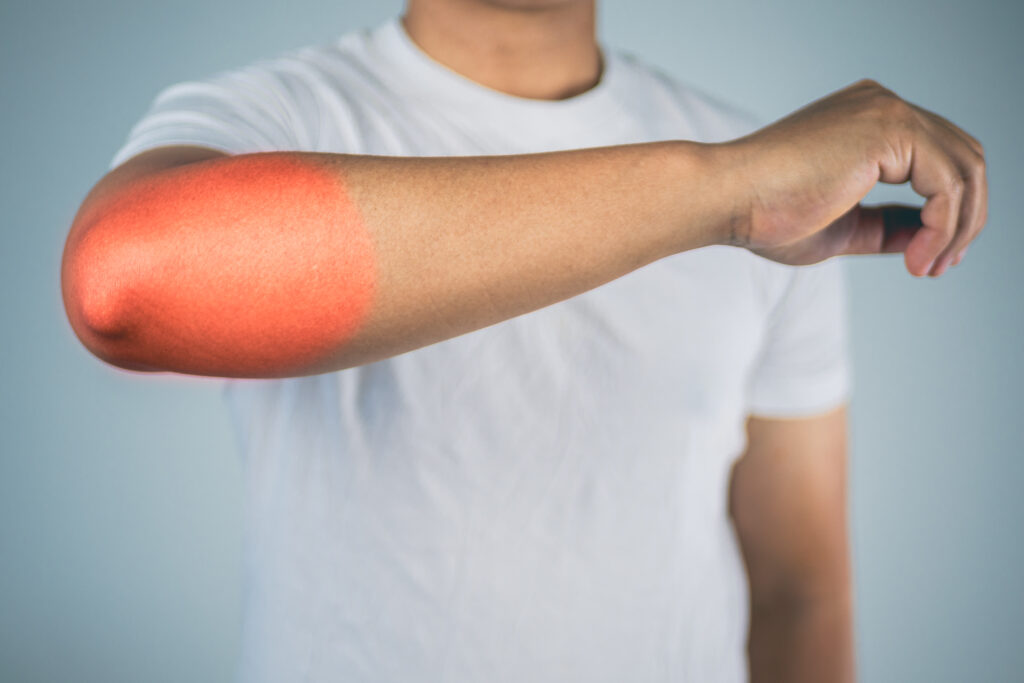When dealing with a sports injury, it's essential to recognize the wide array of recovery techniques available to you, and chiropractic care is a pivotal part of that process. Many people believe physical therapy is their only option, but there are several natural healing strategies, including chiropractic adjustments, that can significantly enhance your recovery.
Chiropractic care focuses on aligning your spine and joints, which can alleviate pain and improve mobility, allowing your body to heal more effectively. Additionally, the role of nutrition cannot be overstated; a diet rich in anti-inflammatory foods can support your healing journey. Mental strategies, such as visualization and mindfulness, also play a crucial role in fostering resilience during recovery.
As you learn about these expert techniques, you'll discover insights that not only expedite your healing but also help you avoid future injuries. What if the key to a faster comeback lies in a more holistic approach than you ever considered? Embracing chiropractic care alongside other recovery methods might just be the secret to your optimal healing.
Understanding Sports Injuries
As a local chiropractor, I often see athletes of all levels dealing with frustrating setbacks due to sports injuries. It's essential to understand the nature of these injuries to facilitate effective recovery and promote overall well-being. When you push your body to its limits—whether during practice or competition—you may encounter strains, sprains, fractures, and even more severe injuries. These issues can arise from overuse, improper technique, or inadequate warm-up routines. By recognizing the signs and symptoms of injury early on, you can address the problem before it escalates.
I encourage you to take a moment to evaluate your physical activity. Are you experiencing persistent pain, swelling, or a reduced range of motion? These symptoms may indicate an underlying injury that needs attention. It's crucial to listen to your body; ignoring these signals can lead to more severe complications and extended recovery times.
Different types of injuries require tailored approaches to healing. For example, a sprained ankle often benefits from the RICE method—rest, ice, compression, and elevation—to reduce swelling and promote healing. Conversely, muscle strains typically necessitate a gradual return to activity with a focus on stretching and strengthening exercises.
Additionally, it's important to consider how the specific demands of your sport can influence your risk of injury. High-impact sports, like football or basketball, tend to have higher injury rates compared to low-impact activities such as swimming or cycling. By understanding the unique stresses your sport places on your body, you can better prepare and reduce your risk of injury.
As a chiropractor, I'm here to guide you through the recovery process using natural healing techniques that focus on restoring balance and function to your body. Together, we can develop a personalized plan to not only address existing injuries but also enhance your overall performance and prevent future injuries.
Importance of Physical Therapy
Recovering from an injury involves more than just taking time off; it requires rehabilitation and a focus on restoring your body's natural function. This is where chiropractic care becomes essential. While many may think of chiropractic as merely spinal adjustments, it encompasses a comprehensive approach aimed at enhancing your overall health and aiding in recovery.
When you visit a chiropractor, you receive a tailored plan designed specifically for your injury and personal recovery objectives. We conduct detailed assessments to identify any misalignments or weaknesses in your body and educate you about your body's mechanics. Understanding how your body works empowers you to take an active role in your healing process.
Chiropractic care helps to prevent complications that can arise due to inactivity, such as muscle weakness and joint stiffness. By engaging in specific chiropractic techniques and exercises, you can accelerate your recovery while also minimizing the risk of re-injury down the line. We teach you safe movement patterns, ensuring that when you return to your activities, you do so with improved strength and resilience.
Moreover, chiropractors utilize hands-on treatments, including spinal adjustments and other modalities like soft tissue therapy, to alleviate pain and stimulate the body's natural healing processes. These techniques enhance your recovery experience and contribute to your overall well-being.
In essence, chiropractic care is about fostering a healthier, stronger you—helping you not only to recover but to thrive in your everyday life and activities.
Role of Nutrition in Recovery
As a local chiropractor, I want to emphasize the vital role nutrition plays in your recovery journey. It significantly influences how quickly and effectively your body heals, especially when recovering from a sports injury. The right nutrients can support tissue repair, reduce inflammation, and strengthen your immune system.
Let's explore the key components you should focus on to enhance your recovery.
First and foremost, prioritize protein in your diet. It's essential for repairing and building muscles. Incorporate sources like lean meats, fish, eggs, dairy, legumes, and nuts into your meals. Strive for a balanced intake throughout the day to ensure your body has a steady supply of amino acids, which are the building blocks of muscle recovery.
Next, let's talk about carbohydrates. These are your body's main source of energy, which is crucial during the recovery process. Carbohydrates help replenish glycogen stores that may be depleted after an injury. Whole grains, fruits, and vegetables are fantastic sources that also provide essential vitamins and minerals to support your healing journey.
Don't forget about healthy fats, either. Including foods rich in omega-3 fatty acids, such as fatty fish, flaxseeds, and walnuts, can help reduce inflammation, which is key to a smoother recovery.
Hydration is also critical. Ensuring you drink enough water supports your body's functions and can help prevent issues like muscle cramps and fatigue. If your injury is more severe, consider electrolyte-rich drinks to help replenish any lost minerals.
Lastly, I strongly encourage you to consult with a nutritionist. They can create a personalized nutrition plan tailored to your specific needs, ensuring you consume the right foods to support your recovery effectively.
Mental Strategies for Healing
When it comes to recovering from an injury, as your local chiropractor, I want to emphasize the importance of your mindset in the healing process. Your mental approach can significantly influence how quickly and effectively you heal. One of the first steps is to set realistic goals for your recovery. Instead of fixating on the end result, break your healing journey into smaller, achievable milestones. This not only helps keep you motivated but also allows you to celebrate those small victories along the way.
Visualization is a powerful technique that can aid your recovery. I encourage you to picture yourself back in action—successfully participating in your favorite activities or sports. Imagine the movements, the strength in your body, and the excitement of competing. By using this technique, you can boost your confidence and help your brain establish neural pathways that are crucial for physical healing.
Staying connected with your support system is also vital. Surround yourself with positive influences—friends, family, or teammates who uplift you. Sharing your feelings, concerns, and achievements with them can help reduce any feelings of isolation and anxiety, making your mental journey smoother.
Incorporating mindfulness and meditation into your routine can also be beneficial. These practices are effective for managing stress and anxiety that might arise during recovery. Simple techniques like focusing on your breath, engaging in guided imagery, or practicing yoga can help ground you in the present moment and promote relaxation.
Lastly, it's essential to maintain a positive inner dialogue. Work on replacing any negative thoughts with affirmations of your strength and resilience. Remind yourself that healing is a journey that takes time, and setbacks are a natural part of that process.
Preventing Future Injuries
As a local chiropractor, I want to share some important insights on how to prevent future injuries through a holistic approach to your health and well-being.
It's essential to be proactive in your training and daily activities to avoid common injuries. Strengthening your body, enhancing your flexibility, and practicing proper techniques in your sport are crucial steps toward maintaining a healthy lifestyle. Neglecting these aspects can lead to overuse injuries or accidents, which is why building a solid foundation is paramount.
Here are three strategies I encourage you to incorporate into your routine:
- Warm Up Properly: Always begin with a dynamic warm-up. This helps increase blood flow to your muscles and prepares your body for the activity ahead. A proper warm-up can significantly reduce the risk of strains and sprains, which are common injuries I see in my practice.
- Cross-Train Regularly: It's beneficial to engage in a variety of exercises to develop overall strength and flexibility. Cross-training not only boosts your performance but also helps prevent repetitive strain injuries by ensuring that different muscle groups are balanced and not overworked. This approach aligns well with the principles of chiropractic care, which emphasizes the importance of a well-rounded physical regimen.
- Listen to Your Body: Being attentive to any signs of discomfort or fatigue is crucial. If you experience pain, it's important not to ignore it. Rest and recovery are vital to prevent exacerbating potential injuries.
As your chiropractor, I'd also emphasize the value of regular check-ups to monitor your body's alignment and function, helping you stay in optimal condition.
By integrating these strategies into your lifestyle, you can significantly reduce the likelihood of injuries and enhance your overall health.
Conclusion
As a local chiropractor, I want to emphasize how incorporating expert techniques for sports injury recovery can significantly enhance your healing process. Many people may not realize the vital role chiropractic care plays in recovery, alongside physical therapy, nutrition, and mental strategies. By focusing on these areas, you can not only speed up your recovery but also strengthen your body to prevent future injuries.
Regular check-ups with a chiropractor are essential, as we can tailor your rehabilitation plan to meet your unique needs. Our holistic approach addresses the root causes of pain and dysfunction, helping you regain mobility and strength. Staying proactive about your recovery journey is crucial; with the right guidance and support, you'll be back in the game stronger than ever.
Don't underestimate the benefits of a well-rounded recovery plan that includes chiropractic care. Together, we can pave the way for a healthier, more resilient you!



